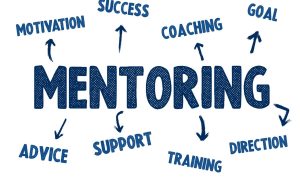Everyone feels insecure at some point, but few admit it openly. You may feel it before giving a big presentation, meeting new people, or starting a new relationship. These moments of vulnerability can be harrowing because they threaten the self-image you’ve carefully cultivated. The question is not whether insecurity will show up—it’s when and how it shapes your choices.
Understanding why & when you feel insecure? It is the first step toward addressing it. Insecurity is not a sign of weakness; it’s part of the human condition. Even the most confident leaders admit to bouts of self-doubt. The key difference lies in how they respond when insecurity knocks.
Unpacking the Deeper Roots of Your Insecurity
Insecurity rarely appears from nowhere. It often stems from early experiences, personal comparisons, or social conditioning. Childhood criticism, neglect, or trauma can plant seeds of doubt that persist into adulthood. For instance, growing up with overly critical parents can create a constant inner voice that questions your worth.
Cultural narratives also play a decisive role. Social media, for example, bombards people with carefully curated success stories. When you constantly compare your behind-the-scenes struggles to someone else’s highlight reel, insecurity grows. Research indicates that frequent social media use can exacerbate self-esteem issues, particularly among young adults.
Another overlooked root is perfectionism. Perfectionists often link their value to achievements. When performance falls short of impossible standards, insecurity thrives. This explains why even high achievers—such as CEOs, athletes, or artists—sometimes confess to feeling like impostors. They don’t lack competence; they wrestle with an internal fear of being exposed.
Identifying Your Specific Triggers and Situational Insecurity

Knowing the root causes is useful, but insecurity becomes easier to manage once you identify your personal triggers. Triggers are the specific situations where self-doubt surfaces. These vary widely from person to person and often depend on context.
The Social Arena
Social settings can magnify insecurity. Imagine walking into a networking event where everyone seems polished, confident, and well-connected. The fear of being judged or rejected can make even seasoned professionals second-guess themselves. Research in social psychology highlights that humans are wired to seek acceptance, which explains why exclusion stings so deeply.
Personal stories illustrate this best. Consider the executive who appears composed in boardrooms but feels anxious at casual dinners. Or the college student who excels academically but freezes when introducing themselves at a party. Social confidence is not always consistent across settings.
Performance Under Pressure
Workplace evaluations, exams, or public performances often trigger insecurity. The pressure to perform flawlessly amplifies self-doubt. Athletes, for example, usually speak about the “choke factor”—a drop in performance due to mental pressure rather than lack of skill.
In corporate environments, performance reviews can feel like judgment day. Employees may interpret constructive feedback as evidence that they’re not good enough. This perception may not always reflect reality, but it still impacts confidence.
A fascinating case study comes from musicians. Many report stage fright even after years of performing. Their talent is unquestionable, yet insecurity emerges in the spotlight.
Relationship Dynamics & Intimate Connections
Romantic and personal relationships often trigger unique insecurities. Fear of abandonment, rejection, or not being “enough” can dominate thoughts. A partner’s silence may feel like disapproval, even if it’s unrelated to the issue at hand.
Insecurity in relationships often stems from attachment styles developed in childhood. Psychologists explain that anxious attachment, for instance, can lead to constant reassurance-seeking. Stories from therapy usually reveal patterns where one partner doubts themselves despite consistent affirmation from the other.
Moments of Transition & Uncertainty
Life transitions—such as moving to a new city, starting a new job, or becoming a parent—can unsettle even the most confident individuals. These moments often strip away familiar routines, leaving space for doubt.
Consider the professional who thrived in a previous role but feels lost after a promotion. Or the new parent is overwhelmed by responsibility despite reading every parenting book available. Uncertainty magnifies insecurity because the mind craves predictability.
How Insecurity Shapes Your Behavior and Identity
Insecurity doesn’t just affect feelings—it changes behavior. People often overcompensate, avoid challenges, or seek constant validation. These behaviors shape identity over time.
For example, someone who is insecure about their intelligence may avoid sharing ideas in meetings. Over time, colleagues may perceive them as disengaged, which further reinforces the insecurity. This cycle creates what psychologists refer to as a “self-fulfilling prophecy.”
On the other hand, some individuals respond to insecurity with overcompensation. Think of the leader who dominates conversations, not out of confidence, but to mask self-doubt. Audiences might see arrogance, but underneath lies fear of being dismissed.
Insecurity also influences identity on a deeper level. Constant self-comparison shapes how you define yourself. If you repeatedly tell yourself, “I’m not as talented as others,” it becomes part of your identity. Over the years, this belief has shaped choices, relationships, and even career paths.
Shifting from Insecurity to Self-Confidence
The good news? Insecurity doesn’t have to dominate. Shifting toward confidence involves awareness, practice, and sometimes uncomfortable changes.
Start with self-awareness. Keep a journal to track moments when insecurity appears. Identifying patterns—specific people, situations, or thoughts—helps you prepare responses in advance.
Reframing thoughts also makes a difference. Instead of saying, “I always fail at this,” replace it with, “I’m learning and improving.” Cognitive-behavioral therapists often emphasize the power of restructured self-talk in building confidence.
Another strategy involves embracing imperfection. Athletes and performers often train themselves to accept mistakes as part of growth. The same applies to everyday life. When you stop demanding flawless outcomes, insecurity loses its grip.
Community support also matters. Surrounding yourself with encouraging people shifts perspective. Stories from mentorship programs demonstrate that guidance and reassurance from experienced individuals can accelerate the building of confidence.
When to Seek Professional Support on Your Healing Journey

Insecurity is natural, but chronic insecurity can affect mental health and quality of life. If insecurity consistently blocks opportunities, strains relationships, or leads to depression, professional help may be necessary.
Therapists provide tools to uncover root causes, challenge negative beliefs, and build resilience. Cognitive-behavioral therapy, for example, has strong evidence for reducing insecurity-driven anxiety. Support groups also offer a safe space to share experiences without judgment.
Real-world examples show the impact of therapy. A client struggling with workplace anxiety may discover that insecurity stems from childhood criticism. With professional guidance, they replace self-doubt with healthier patterns of thought.
Seeking support is not a sign of weakness; it is a sign of strength. It’s a proactive step toward growth. Just as you’d consult a coach to improve athletic skills, seeking therapy strengthens emotional resilience.
Conclusion
Insecurity is a shared human experience, but it doesn’t have to define you. Recognizing its roots, identifying triggers, and shifting responses can transform self-doubt into self-awareness.
The question is, why & when do you feel insecure? Opens a door to deeper understanding. When you examine the answer honestly, you uncover growth opportunities. Confidence is not about eliminating insecurity; it’s about responding differently when it arises.
Next time insecurity shows up, ask yourself: What is this feeling trying to teach me? That slight shift can change everything.
FAQs
Yes. In small doses, insecurity can motivate growth and humility. It becomes harmful only when it dominates behavior and identity.
If you avoid opportunities, seek constant validation, or experience persistent self-doubt, insecurity may be hindering your growth.
Insecurity is situational self-doubt, whereas low self-esteem reflects a more generalized, negative self-image across various areas of life.
If insecurity causes chronic anxiety, affects relationships, or prevents you from pursuing goals, professional support is advisable.





